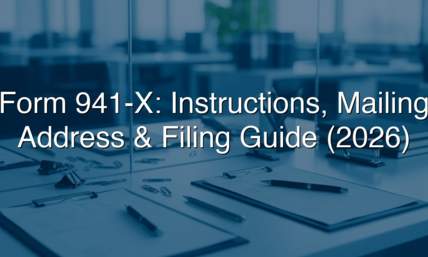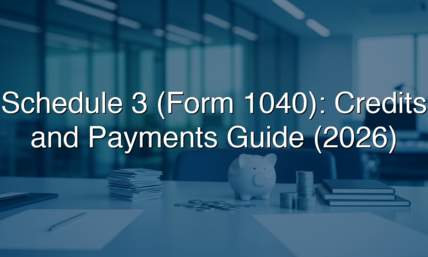Unemployment Taxes And The Small Business Owner
If you paid $1,500 or more to an employee, your business has to pay the unemployment tax. If you’re like many small business owners, the complications of the tax code can be a headache you don’t need. Unemployment taxes pay for unemployment insurance, and all businesses pay in a percentage of their payroll into the system.
Unemployment tax exists to provide protection for workers who lose their jobs. These workers must have lost their job through no fault of their own, though local laws do vary on a state level. State and Federal unemployment taxes exist, and we will cover them in the next section.
Also read: How Much Is Social Security tax?
Unemployment Tax
Unemployment tax is paid for by the employee. The deduction will not show up on a traditional paystub, and the employee will not see how much is spent. The business is responsible for this expense, and it’s tied to the total payroll that your business has.
Federal Unemployment Tax
FUTA, or Federal Unemployment Tax Act, is set up to fund the unemployment insurance system. This system works in combination with state unemployment systems. The rate is 6% on the first $7,000 of payroll paid to each employee. This is offset if you pay into the state unemployment system, and you’ll receive a credit of 5.4%.
This means that if you qualify for this tax break, you will end up paying 0.6% of the first $7,000 of payroll per employee. This comes to $420 per employee with the tax break. If you’re an employer that engages in federal business or operates overseas, then you’ll have to pay this amount. If you’re an employer that operates only in a single state, it is much easier to qualify for the tax break, but your state rates will vary considerably.
State Unemployment Tax
State unemployment taxes vary based on what state you are operating in. This can make it tricky to offer blanket advice because some states tax various industries differently. This difference can be based on how likely your business is to lay people off. Industries with a higher propensity for lay-offs and protected time off, like construction, could have a different rate.
Businesses like airplane manufacturing that are intrinsic to the state economy may also receive different consideration. For the state unemployment tax, make sure that you’re compliant with local regulations. Being compliant is the only way to receive the tax break on your federal unemployment tax. If you aren’t, you will be forced to pay even more into the system.
Your tax rate will change based on the time your business is in operation. Depending on the state, you can have a wildly different SUTA rate from year to year. This change will be sent to you by the state, and you should expect it to change based on laws and regulations every year to every few years.
Also read: Payroll Tax Vs Income Tax - The Ultimate Guide
How Do I Find Out My Rate?
The key to finding out your rate comes down to your business identification number. When you first establish your business, you will receive a business ID. This helps the government of your state and the federal government track your business and ensure you are complying with tax laws. The state will provide you information each year based upon what your tax rate will be.
Introductory rates will change, often after the first year of operation. This change may not always be in your favor, so make sure to budget a small increase if you’re operating on a tight budget. If you don’t receive any information from your state, contact your state revenue system immediately. Prompt action is necessary to avoid a costly tax bill that could complicate your budget even further.
The burden of action is on you in regards to taxes, as is so often the case when dealing with government.
Unemployment Taxes And You
The first thing to cover here is that you have to pay unemployment taxes if you have employees and payroll. While many taxes can be dodged, and you can minimize the federal rate, your state unemployment tax is unavoidable. If you use an accountant or tax advisor, make sure they are up to date on what you can expect and speak to them about the unemployment tax.
Unemployment tax can be a phantom expense not many new business owners think about because it doesn’t appear on any payroll stubs they have ever received. The form you will use as a business is known as Form 940. These taxes can be paid quarterly, or anytime that the overall tax burden reaches $500. Paying this expense incrementally helps to relieve the strain that your business could experience at the end of the year.
The Bottom Line
Owning and operating a business comes with a lot of expenses that employees will never see. Maintaining a good budget is the key to survival in the business world. Use services that can help simplify your tax issues while also providing good value to your customers. In the area of payroll and payroll taxes, it’s important that you comply with all state and federal laws.
Failure to do so can result in severe penalties, both monetary and potential jail time depending on the state and laws you are violating. All of these expenses, like the Unemployment Tax, can add up and be prohibitive for a business that is struggling to establish itself. Consider reducing costs in other areas, such as using a paystub maker in order to alleviate payroll costs.
The more you take on yourself, the more stressful running your business will be. Take away some of that stress by trusting in services that can save you time and money. These services exist because business owners around the country have discovered the benefits of working with professional services. Large businesses take a lot of steps to avoid expenses like unemployment tax.
One reason why they have massive profits is knowing how to work the system to their benefit. Failing to understand and maneuver within the tax system can make your business weaker versus your competition. Let's help get you started by creating a paystub easily for your employees today!















